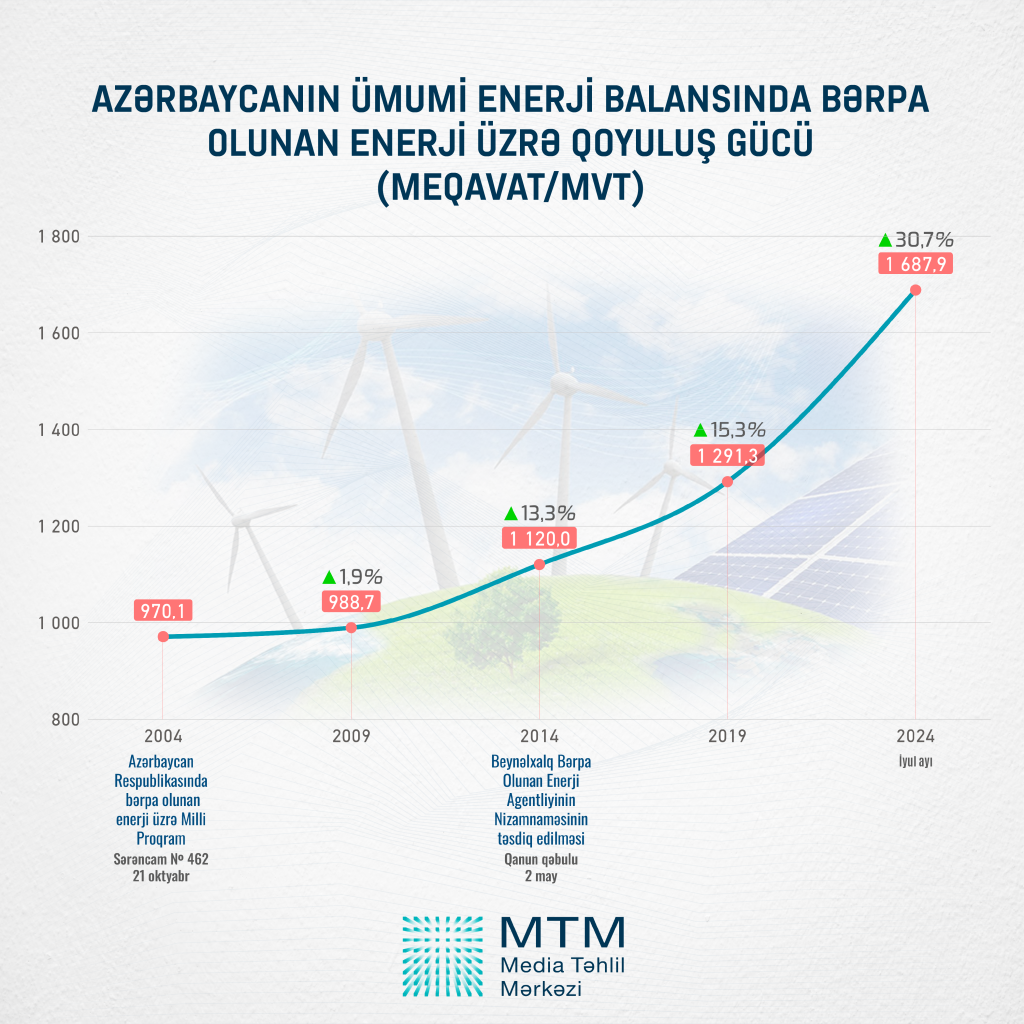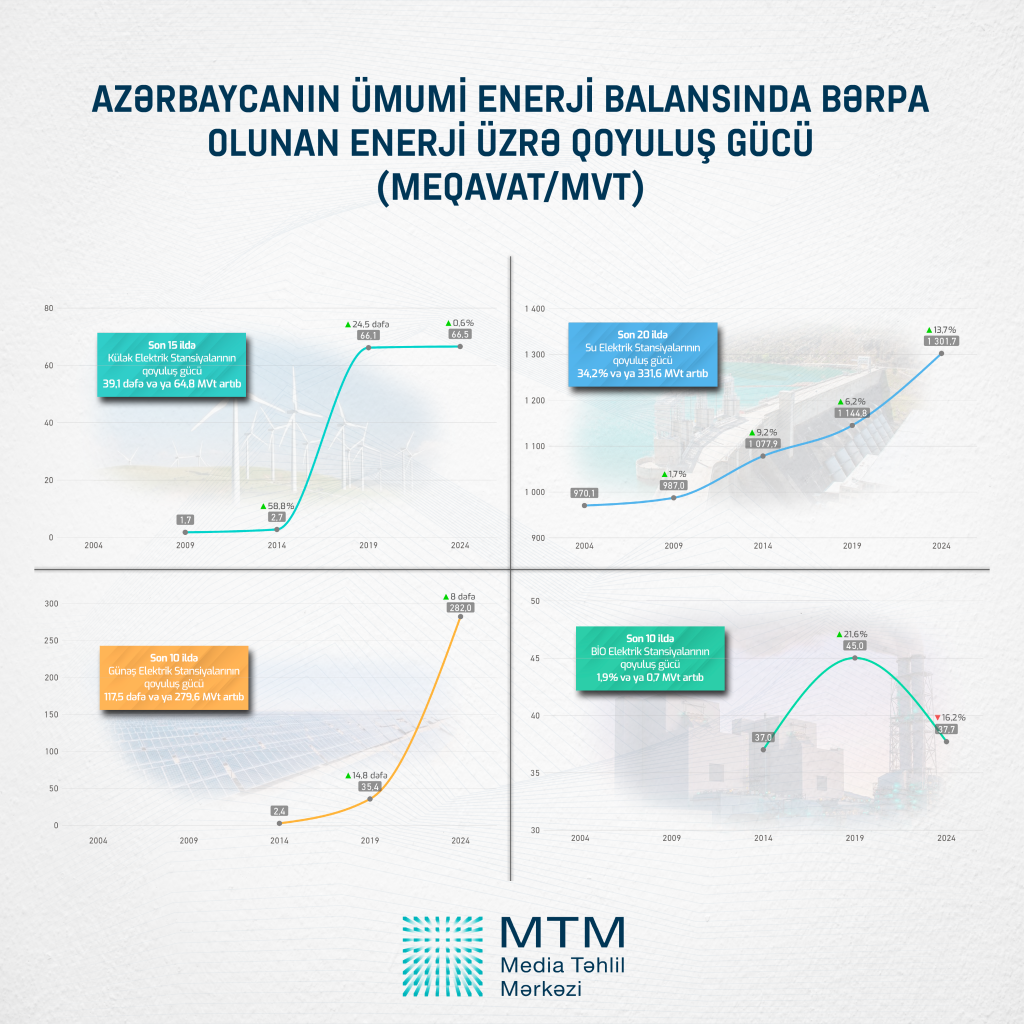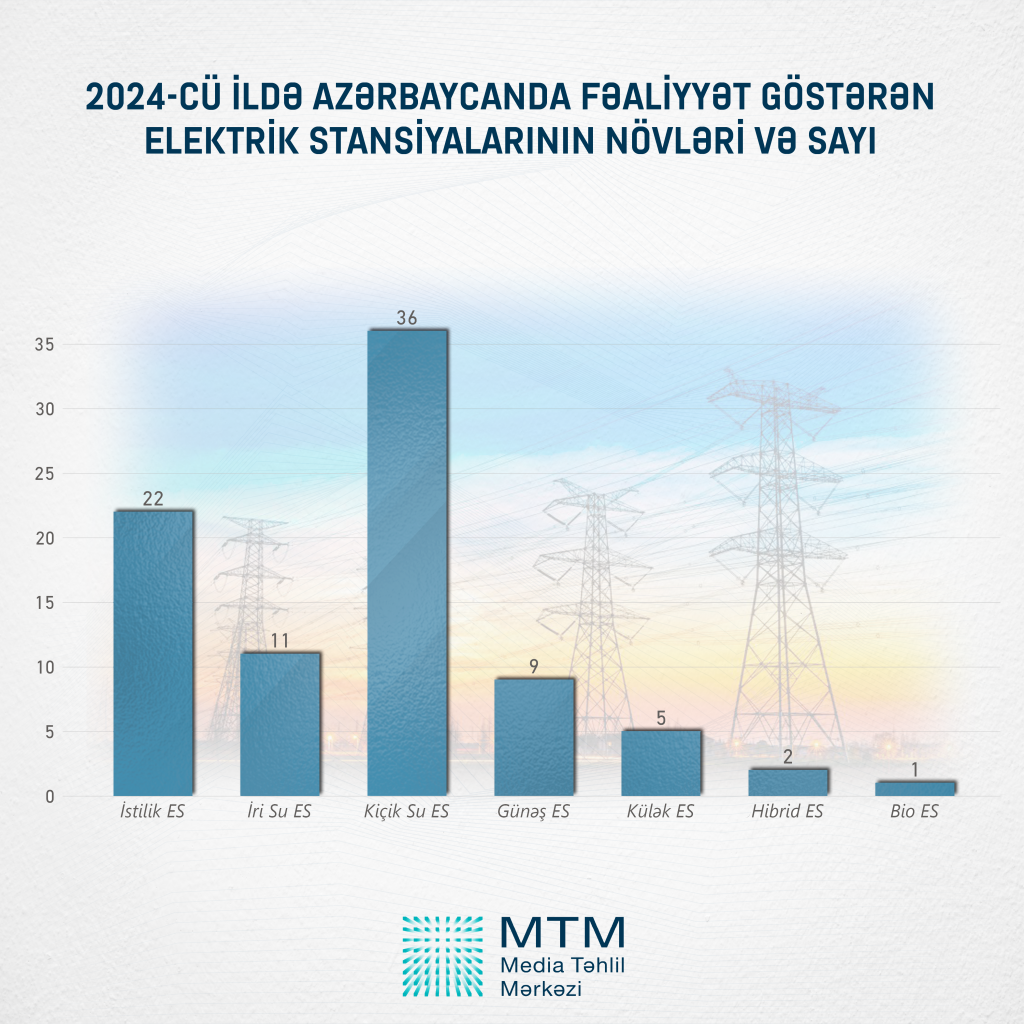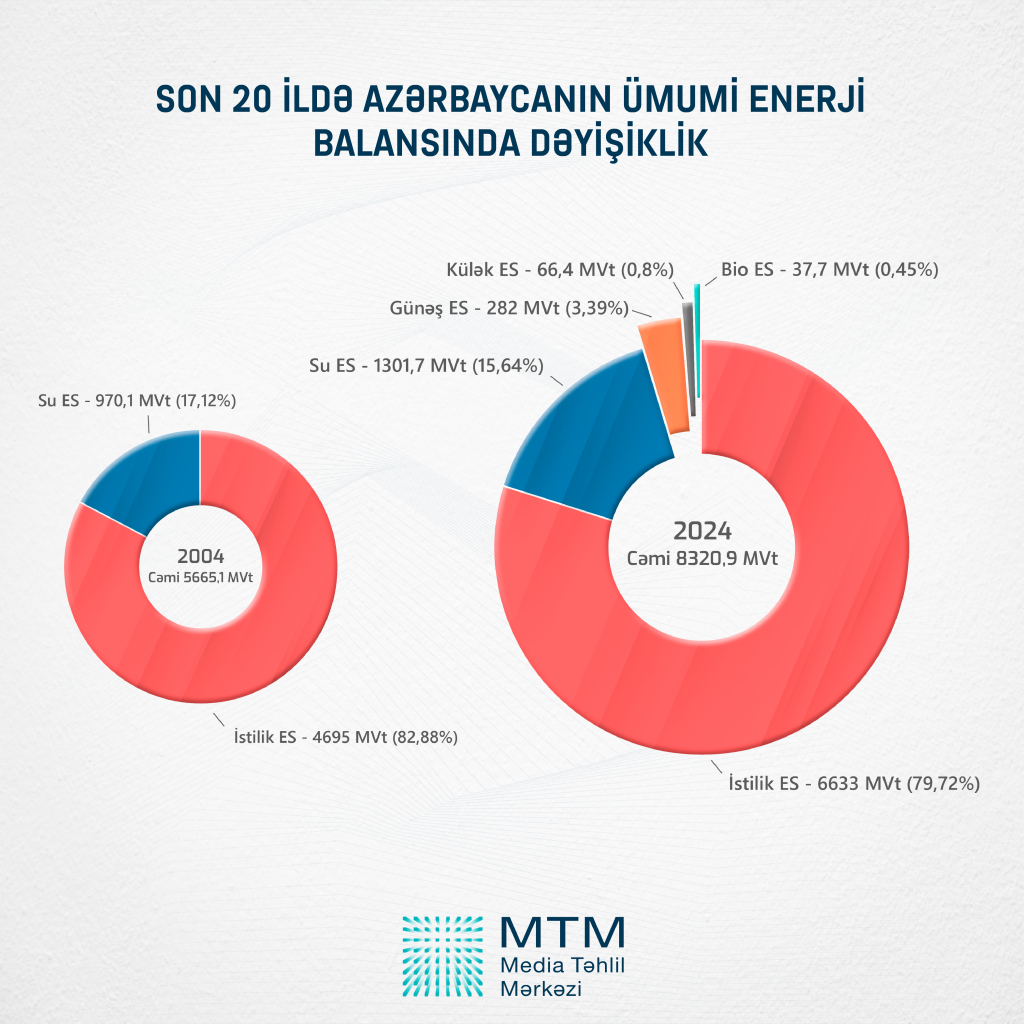BAKU, Azerbaijan, August 26. The analysis of data obtained by the Media Analysis Center from the official websites of the State Statistics Committee, the Ministry of Energy, and the State Agency for Renewable Energy Sources shows that since President Ilham Aliyev signed a decree on October 21, 2004, approving the “State Program on the Use of Alternative and Renewable Energy Sources in the Republic of Azerbaijan”, the country's installed capacity of renewable energy sources has increased by 74 percent or 717.8 MW to date, Trend reports.
According to the information, after the approval by the head of state on May 2, 2014, of the Charter of the International Renewable Energy Agency, signed in Bonn on January 26, 2009, the installed capacity of renewable energy sources in Azerbaijan has increased by 50.7 percent or 567.9 MW as of the present date.
Based on the data for July of the current year, the installed capacity of renewable energy sources in the country amounted to 1,687.9 MW. This is 30.7 percent or 396.6 MW more than five years ago.

If we pay attention to the capacity of renewable energy power plants in Azerbaijan, we will see that the main type of energy is water. Over the last 20 years, the installed capacity of hydroelectric power plants in Azerbaijan has increased by 34.2 percent or 331.6 MW. Presently, the installed capacity of hydropower plants is 1301.7 MW. This also represents an increase of 13.7 percent over the last five years.
The latest data indicates that the capacity of wind power plants in Azerbaijan is 66.5 MW, which is 39.1 times or 64.8 MW more than 15 years ago. It should also be noted that for the first time, wind farms in Azerbaijan started operating in 2009, and at that time their installed capacity amounted to 1.7 MW.
The installed capacity of solar power plants is 282 MW. This is 8 times more than five years ago and 117.5 times more than ten years ago. About 81.6 percent of the installed capacity of solar power plants, or 230 MW falls on Garadagh NPP, which was launched in 2023.
Garadagh NPP was built at the expense of foreign investments amounting to $262 million. Garadagh NPP is the first solar power plant of industrial scale in Azerbaijan, implemented with the involvement of foreign investments. The capacity of the Balakhani bioelectric power plant, the only one in the country, is 37.7 MW.

If we compare power plants by number, we see that hydroelectric power plants rank first, with a total of 47 plants, 11 of which are large and 36 of which are small.
Thermal power plants with 22 stations occupy the second place and also makeup 25.6 percent of all power plants.
Additionally, it should be noted that nine solar, five wind, and one bioelectric power plant produce electricity in Azerbaijan. Besides, two hybrid power plants exist in Azerbaijan, where electricity generated from wind, solar, and biogas is transmitted to the power grid in a hybrid form.

If we look at the change in the form of electricity generation in Azerbaijan over the last 20 years, we can see that solar, wind, and bioelectric power plants have been established over the years, and the number of hydroelectric power plants has increased.
To note, only two types of power plants generating electricity existed in Azerbaijan in 2004 (Thermal and Hydro). The installed capacity of power plants in that period amounted to 5,665.1 MW, of which 82.88 percent (4,695 MW) were thermal power plants and 17.12 percent (970.1) were hydropower plants.
The installed capacity of power plants in 2024 is 8,320.9 MW, of which 79.72 percent (6,633) are thermal power plants and the remaining 20.28 percent are renewable energy power plants (15.64 percent are hydropower plants, 3.39 percent are SPP, 0.8 percent are wind power plants, and 0.45 percent are biopower plants).

Stay up-to-date with more news on Trend News Agency's WhatsApp channel







